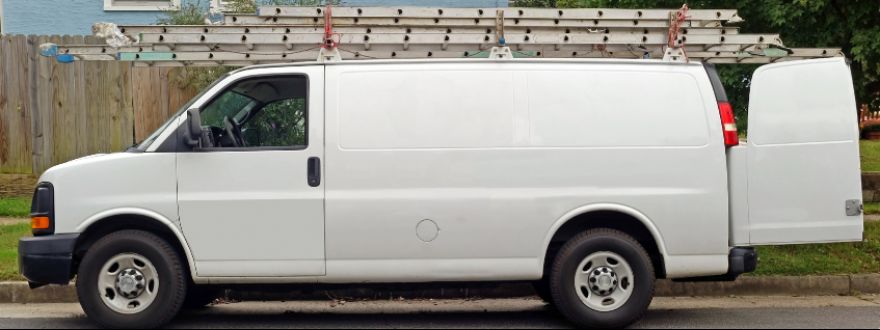
Running a business in Florida often means staying mobile—whether you’re delivering goods, transporting tools, or sending employees on service calls. If your business uses vehicles, having the right commercial auto insurance isn’t optional—it’s a legal requirement and a smart investment.
This guide offers a detailed breakdown of:
-
What commercial auto insurance covers
-
Florida’s specific coverage requirements for different industries and vehicle types
-
How to select a comprehensive, affordable policy that truly protects your business
Based on insights from local Florida agencies like American US Insurance, which regularly works with contractors, delivery services, and small business fleets to secure tailored auto insurance coverage.
What Is Commercial Auto Insurance?
Commercial auto insurance is a specialized policy that covers vehicles used for business purposes. It protects both the vehicle and the driver, offering financial protection in the event of:
-
Accidents (at fault or not)
-
Vehicle damage or theft
-
Medical expenses
-
Liability claims
-
Uninsured/underinsured drivers
This coverage is required by Florida law for any vehicle registered for business use.
Who Needs Commercial Auto Insurance in Florida?
If you or your employees drive a vehicle for anything other than commuting, you likely need a business auto insurance policy. Common examples include:
-
Contractors (HVAC, plumbing, electrical)
-
Landscapers and construction crews
-
Food trucks and catering businesses
-
Delivery and courier companies
-
Real estate agents
-
Rideshare drivers (if you own the vehicle under your business)
-
Sales teams using company cars
-
Fleets of vans or trucks
Even small businesses with just one vehicle need the right coverage—Florida personal auto policies typically don’t cover commercial activity.
Florida Commercial Auto Insurance Requirements
The State of Florida requires minimum liability coverage for all registered commercial vehicles:
Minimum Requirements:
-
$10,000 Property Damage Liability (PDL)
-
$10,000 Personal Injury Protection (PIP)
However, these bare minimums are not enough for most businesses. If you cause a serious accident or damage high-value property, you could be on the hook for tens of thousands—if not more.
Types of Commercial Auto Insurance Coverage
1. Liability Coverage
Protects your business if your driver causes an accident. Covers bodily injury and property damage to others.
2. Collision Coverage
Pays for damage to your business vehicle in a crash, regardless of fault.
3. Comprehensive Coverage
Covers non-collision incidents—like theft, vandalism, or hurricane damage (a major concern in Florida).
4. Uninsured/Underinsured Motorist Coverage
Protects your business if another driver causes an accident but lacks sufficient insurance.
5. Medical Payments / PIP
Covers medical costs for your driver and passengers, regardless of fault.
6. Hired and Non-Owned Auto Insurance (HNOA)
Essential if your employees use personal vehicles for work or if you rent vehicles occasionally.
Industry-Specific Coverage Needs
Different industries face different risks when it comes to commercial vehicle use. Below is a quick breakdown of common business types, the vehicles they typically use, and the key insurance coverages they should consider:
Construction Businesses
-
Common Vehicles: Trucks, vans, utility trailers
-
Recommended Coverage: Collision, liability, equipment protection
Delivery Services
-
Common Vehicles: Cargo vans, box trucks
-
Recommended Coverage: Higher liability limits, cargo and goods-in-transit coverage
Real Estate Professionals
-
Common Vehicles: Sedans, SUVs used for property showings and meetings
-
Recommended Coverage: Liability, roadside assistance, business use endorsement
Food Service & Catering
-
Common Vehicles: Catering vans, food trucks, mobile kitchen vehicles
-
Recommended Coverage: Collision, fire and theft, business interruption coverage
Landscaping Companies
-
Common Vehicles: Pickup trucks, trailers for equipment transport
-
Recommended Coverage: Towing coverage, trailer and attached equipment protection
Tip: Work with a Florida-based commercial insurance agent (like American US Insurance) who understands local industry regulations and vehicle classifications.
How to Choose the Right Policy for Your Florida Business
✅ 1. Know Your Vehicle Use
Be clear about how your vehicles are used. Occasional business use vs. daily fleet operations will affect your premiums and required coverage.
✅ 2. Bundle Coverage Where Possible
Some providers offer multi-policy discounts when bundling commercial auto with general liability, property, or workers’ comp.
✅ 3. Consider Higher Liability Limits
Florida’s minimums are low. Most businesses should consider $100,000–$1,000,000 liability limits to avoid out-of-pocket disaster after a major accident.
✅ 4. Update Your Policy as You Grow
New vehicles, employees, or services? Don’t forget to review and update your coverage at least once a year.
✅ 5. Ask About Deductibles and Claims Support
Choose a deductible you can realistically afford—and make sure the insurer offers strong claims support in Florida.
Frequently Asked Questions (FAQ)
Q: Is commercial auto insurance required in Florida?
A: Yes. Any vehicle used for business must meet Florida’s minimum auto insurance requirements. Personal auto insurance usually won’t cover business use.
Q: What does commercial auto insurance cover that personal insurance doesn’t?
A: It includes higher liability limits, employee driver coverage, cargo protection, and more—designed for business risk, not personal use.
Q: Can I cover multiple business vehicles under one policy?
A: Absolutely. You can insure your entire fleet with a fleet policy, often at a lower per-vehicle rate.
Q: How much does business auto insurance cost in Florida?
A: Rates vary by vehicle type, driving history, location, and coverage. Many Florida businesses pay $120–$250 per vehicle/month.
Q: What if my employees use their own cars for work?
A: You’ll need hired and non-owned auto coverage to protect your business in case they’re in an accident while on the job.
